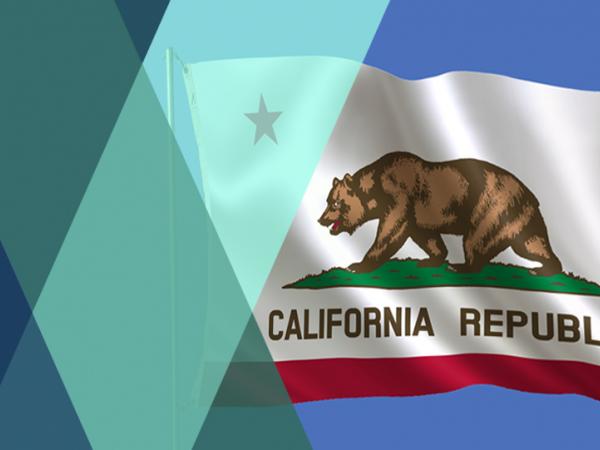
Privacy & Cybersecurity
Viewpoints
Filter by:
FTC Warns AI Companies to Honor Privacy and Confidentiality Commitments — AI: The Washington Report
January 19, 2024 | Blog | By Michael Katz, Bruce Sokler, Alexander Hecht, Christian Tamotsu Fjeld, Raj Gambhir
Read about the FTC’s business guidance blog post discussing its resolve to enforce the privacy commitments of certain AI firms known as “model-as-a-service” companies in the latest edition of AI: The Washington Report, a joint undertaking of Mintz and ML Strategies covering potential federal legislative, executive, and regulatory activities related to AI.
2023 Round-Up on State Consumer Data Privacy Laws
December 28, 2023 | Blog | By Ilse P. Johnson, Michael Katz, Jon Taylor
Updates to CPPA Proposed Regulations – Part 2: Risk Assessments and Automated Decisionmaking Technology
December 15, 2023 | Blog | By M. Bertie Magit
This post will analyze the discussion and draft regulations for risk assessments and automated decisionmaking technology. The board spent over three hours on this agenda item, focusing closely on defined terms and the timing of certain requirements. As these regulations will impose new burdens and restrictions on many businesses, the board is walking a tightrope, balancing between protecting the consumer and burdening businesses.
Preparation for 2023 Fiscal Year-End SEC Filings and 2024 Annual Shareholder Meetings
December 15, 2023 | Advisory | By John Condon, Anne Bruno, Melanie Ruthrauff Levy, Jacob Hupart, Cynthia Larose, Breton Leone-Quick, Page R. Hubben, Ellen Shapiro
Public companies need to consider regulatory, legal, market, and ESG-related developments in preparing for their fiscal year-end filings with the SEC and their annual shareholder meetings. In an in-depth memorandum, Mintz attorneys discuss the SEC’s new cybersecurity disclosure rule, recent trends in reverse stock splits, and the SEC’s disclosure requirements for Rule 10b5-1 trading plans and insider trading policies, and other emerging issues affecting public companies.
Updates to CCPA Proposed Regulations: Cybersecurity Audits
(Spoiler Alert … they will cost real money and take real effort)
December 14, 2023 | Blog | By Christopher Buontempo
HHS Proposes Plan to Advance Cyber Resiliency in Health Care; OCR Settles Phishing Attack Investigation
December 12, 2023 | Blog | By Pat Ouellette
The U.S. Department of Health and Human Services (HHS) released a concept paper on December 6, 2023 outlining its action plan to enhance cyber resiliency in the health care sector by proposing certain voluntary cybersecurity actions and standards that may ultimately become requirements.
FCC Partners With States to Increase on Privacy and Data Protection Investigations, Signaling Increased Focus on Future Enforcement
December 8, 2023 | Blog | By Jonathan P. Garvin
The Federal Communications Commission (“FCC”) announced Thursday that in furtherance of the work of the agency’s Privacy and Data Protection Task Force, the FCC’s Enforcement Bureau signed Memoranda of Understanding (“MOU”) with the Attorneys General of Connecticut, Illinois, New York, and Pennsylvania to share expertise and resources and to coordinate efforts conducting privacy, data protection and cyber-security-related investigations. Read more about this noteworthy legislative step.
OCR Cybersecurity Newsletter Emphasizes Significance of HIPAA Sanction Policies
October 23, 2023 | Blog | By Pat Ouellette
The Office for Civil Rights (OCR) recently offered covered entities and business associates (Regulated Entities) not-so-subtle reminders in its October 2023 Cybersecurity Newsletter that effective sanction policies can encourage HIPAA compliance.
California Continues to Expand Privacy Protections
October 13, 2023 | Blog | By Michael Katz, Cynthia Larose, M. Bertie Magit
The California Consumer Privacy Act of 2018, as amended by the California Privacy Rights Act of 2020 (the “CCPA”), has been further expanded under Governor Gavin Newsom. The signing of Assembly Bills 947 and 1194 expands the protection of sensitive personal information. Read more to find out the impacts of these bills and the Delete Act.
Release of new Mintz Matrix! States keep tinkering
September 7, 2023 | Article | By Cynthia Larose, Michael Katz
Read more about how several states have clarified or tightened their data breach notification statutes since we last updated the Mintz Matrix at the beginning of the year.
Draft Cybersecurity Audit and Risk Assessment Regulations Issued by CPPA
August 29, 2023 | Blog | By Cynthia Larose
SEC Adopts Final Cybersecurity Rules for Public Companies
August 1, 2023 | Blog | By Cynthia Larose, John Condon, Michael Katz, Stefan Jović
The SEC adopted its final rules and amendments concerning cybersecurity risk management, strategy, governance, and incident disclosure (the “Final Rule”) on July 26, 2023. In this article we highlight some of the principal changes to the cybersecurity rules first proposed by the SEC more than 16 months prior.
OCR and FTC Issue Joint Statement Warning Health Care Providers and App Developers About Use of Third Party Online Tracking Technologies
July 24, 2023 | Blog | By Kathryn Edgerton, Lara Compton, Kate Stewart
Covered entities, business associates, and any entities that collect health information about consumers online should carefully review the latest joint letter from the Office for Civil Rights (OCR) and the Federal Trade Commission (FTC). On July 20, 2023, the agencies sent a joint letter to approximately 130 hospital systems and telehealth providers warning them about “serious privacy and security risks related to the use of online tracking technologies” such ad Google Analytics and Meta/Facebook Pixel. That letter was subsequently shared publicly and should be reviewed by any entity subject to regulation by either agency.
Texas Has Been Busy Ramping up Privacy Protections with new Comprehensive Data Privacy Law and Stricter Data Breach Notification Requirements
July 10, 2023 | Blog | By Cynthia Larose, Michael Katz, Danielle Barney
Texas has joined the growing list of states enacting comprehensive consumer data privacy laws. Read more to learn about the business obligations and consumer protections this law sets.
The FTC Sets Its Sights on Biometric Information
July 6, 2023 | Blog | By Christopher Buontempo, Cynthia Larose
Learn more about the FTC's recent policy statement regarding the collection of consumer's biometric information.
Florida Governor Signs Data Privacy Law Focused on Children, Search Engines and Billion Dollar Businesses
June 9, 2023 | Blog | By Elana Lerner Brockmann, Michael Katz, Cynthia Larose
Florida has joined the growing list of states enacting comprehensive privacy laws. Governor Ron DeSantis (R) signed the Florida Digital Bill of Rights (“FDBR”) into law on June 6th.
Mintz May Madness: Montana’s New Consumer Data Privacy Law Follows the Leaders ... and we’re not talking about California!
May 31, 2023 | Blog | By Michael Katz, Cynthia Larose, Angie Isaza-Loaiza
In Montana, Governor Greg Gianforte signed the Montana’s Consumer Data Privacy Act (S.B. 384) (“MCDPA”) on May 19, 2023 – one of the strongest privacy bills signed in a red state. Montana now becomes the ninth state to enact a comprehensive consumer data privacy law.
My Health, My Data! Washington State Enacts Broad Health Data Privacy Protection Law
May 26, 2023 | Blog | By Lara Compton, Kathryn Edgerton, Adam B. Korn
Washington greatly expanded the protection for consumers’ identifiable health information by enacting the “My Health My Data Act” (MHMDA), in an effort to close the gap between HIPAA protections and the laws protecting the privacy and security of other consumer health care data. While MHMDA resembles the acts in both California and Illinois, it broadly applies to health information outside of traditional health care settings. In this article we answer frequently asked questions about MHMDA’s applicability and requirements.
Mintz May Madness: Tennessee’s Information Protection Act Gets Us Thinking About NIST(y) Safe Harbors
May 12, 2023 | Blog | By Cynthia Larose, Michael Katz, Ilse P. Johnson
Tennessee is expected to become the eighth or ninth state to enact a comprehensive data privacy law. Tennessee Information Protection Act (“TIPA”) is a unique safe harbor compared to other recently enacted laws: it offers an affirmative defense to businesses who create, maintain and comply with a written privacy program that “reasonably conforms” to the National Institute of Standards and Technology (“NIST”) privacy framework or “other documented policies, standards, and procedures designed to safeguard consumer privacy.”
Mintz May Madness: Comprehensive Data Privacy Laws Sweeping the Nation
May 3, 2023 | Blog | By Michael Katz, Cynthia Larose, Ilse P. Johnson
Last month, three state legislatures passed comprehensive data privacy laws. This week, Indiana’s governor signed the Indiana Consumer Data Privacy Act (“ICDPA’) into law. Montana and Tennessee likely to follow right behind. These newcomers will join the six other states with data privacy statutes already enacted.
Explore Other Viewpoints:
- Data Centers & Digital Infrastructure
- AI: The Washington Report
- Antitrust and Federal Regulation
- Appellate
- Arbitration, Mediation & Alternate Dispute Resolution
- Artificial Intelligence
- Awards
- Bankruptcy & Restructuring
- California Land Use
- Cannabis
- Class Action
- Complex Commercial Litigation
- Construction
- Consumer Product Safety
- Corporate Governance (ESG)
- Cross-Border Asset Recovery
- DEI Legal Developments
- Debt Financing
- Direct Investing (M&A)
- Diversity
- EB-5 Financing
- Education & Nonprofits
- Employment
- EnforceMintz
- Environmental (ESG)
- Environmental Enforcement Defense
- Environmental Law
- Environmental, Social, and Corporate Governance (ESG)
- FDA Regulatory
- FDA in Flux
- False Claims Act
- Federal Circuit Appeals
- Financial Institution Litigation
- Government Law
- Growth Equity
- Health Care
- Health Care Compliance, Fraud and Abuse, & Regulatory Counseling
- Health Care Enforcement & Investigations
- Health Care Transactions
- Health Information Privacy & Security
- IP Due Diligence
- IPRs & Other Post Grant Proceedings
- Immigration
- Impacts of a New US Administration
- Insolvency & Creditor Rights Litigation
- Institutional Investor Class Action Recovery
- Insurance & Financial Services
- Insurance Consulting & Risk Management
- Insurance and Reinsurance Problem-Solving & Dispute Resolution
- Intellectual Property
- Investment Funds
- Israel
- Licensing & Technology Transactions
- Life Sciences
- Litigation & Investigations
- M&A Litigation
- ML Strategies
- Managed Care
- Medicare, Medicaid and Commercial Coverage & Reimbursement
- Mergers & Acquisitions
- Patent Litigation
- Patent Prosecution & Strategic Counseling
- Pharmacy Benefits and PBM Contracting
- Portfolio Companies
- Privacy & Cybersecurity
- Private Client
- Private Equity
- Pro Bono
- Probate & Fiduciary Litigation
- Products Liability & Complex Tort
- Projects & Infrastructure
- Public Finance
- Real Estate Litigation
- Real Estate Transactions
- Real Estate, Construction & Infrastructure
- Retail & Consumer Products
- Securities & Capital Markets
- Securities Litigation
- Social (ESG)
- Special Purpose Acquisition Company (SPACs)
- Sports & Entertainment
- State Attorneys General
- Strategic IP Monetization & Licensing
- Sustainable Energy & Infrastructure
- Tax
- Technology
- Technology, Communications & Media
- Technology, Communications & Media Litigation
- Trade Secrets
- Trademark & Copyright
- Trademark Litigation
- Unified Patent Court (UPC)
- Value-Based Care
- Venture Capital & Emerging Companies
- White Collar Defense & Government Investigations
- Women's Health and Technology






